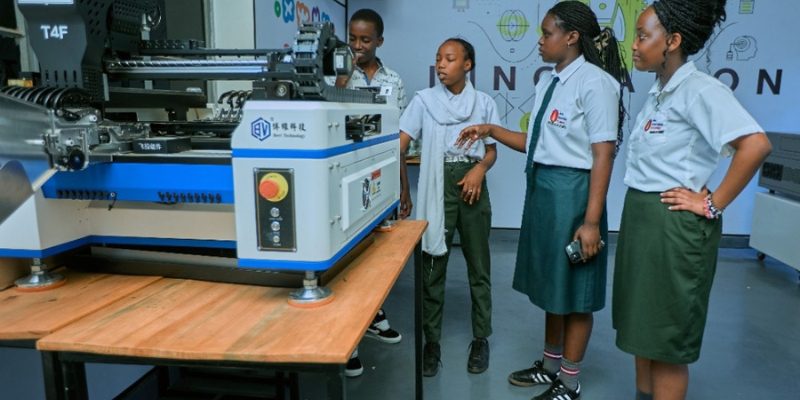Rwanda has officially accredited its first-ever private academy to teach high-demand tech subjects as a recognised trade.
The New Generation Academy (NGA), a private day school located in Kimihurura, Kigali, has secured government approval to offer specialised training in software programming and embedded systems. This makes it the sole private institution in Rwanda authorised to run these crucial programs, which are essential for scaling the country’s digital economy.
The development comes as a timely and impactful move, directly complementing the efforts of the government-run Rwanda Coding Academy (RCA) and increasing the capacity for more talent development.

According to Jean-Claude Tuyisenge, Founder and Managing Director of NGA, this accreditation directly addresses the national need for more skilled developers.
He noted that due to the limited slots available at the highly competitive RCA, many talented students, including those following international curricula, previously missed the opportunity to access this specialised tech education.
“We are excited to announce the launch of a new programme that was previously available only at Rwanda Coding Academy (RCA). Due to the limited number of slots at RCA and the high demand from many talented students, several missed the opportunity to participate. Additionally, students following international curricula often found it nearly impossible to access this program,” he said.
Tuyisenge also added that the milestone was not only for the school but for Rwanda’s broader vision of becoming a regional leader in technology and innovation.
“I take this opportunity to sincerely thank the Government of Rwanda for launching the Rwanda Coding Academy, the first of its kind in Africa. We are also grateful for the trust they’ve placed in us by allowing NGA to be the first private school to offer this programme,” he said.


The Academy’s pioneering role in tech education
The New Generation Academy is positioning itself as a leader in Rwanda’s efforts to train a new, tech-savvy generation. This role is built upon its long-standing focus on early education technology.
The school, which offers nursery, primary, and secondary education, has historically followed a Christian-based, hands-on learning model. Students have been introduced to coding, robotics, and STEM (science, technology, engineering, and mathematics) concepts even in the lower classes, fostering a culture of practical, project-based learning.
This means children learn by doing, not just by listening, which is foundational to developing strong technical and problem-solving skills.
Further illustrating its commitment to technology, the academy hosted a high-profile delegation from the International Olympiad in Artificial Intelligence (IOAI), UNESCO, and Rwanda’s Ministry of ICT and Innovation on November 19, 2024.
The visit was part of the announcement certifying Rwanda as the first IOAI hub in Africa. Following the Cambridge curriculum, NGA is pioneering the integration of AI into its educational programs from the nursery level through secondary school.


During the delegation’s visit, students showcased AI-powered projects, including robotics, drones, and traffic light systems, demonstrating the academy’s dedication to mastering emerging technologies.
This proactive approach to integrating AI education, while still in its nascent stages across Rwanda, is seen as vital for equipping the next generation to compete successfully in global technology and AI competitions.


The goals of the new trade programme
The ultimate goal of this new accredited trade program is to prepare students for successful and globally competitive careers in the real world of technology.
The comprehensive curriculum is designed to equip learners with mastery of both core technical skills and essential problem-solving abilities. By focusing on programming and embedded systems, which drive smart devices, robots, and automated machines, students can gain skills that are highly in demand across the global tech industry.
The Academy has committed to providing instruction guided by teachers with real industry experience, who will mentor students through practical, project-based work.
This ensures that graduates are not just theoretically proficient but are ready to transition directly into professional jobs or to pursue higher education in technology-related fields.
Fundamentally, this initiative is a direct response to the government’s vision of becoming a regional leader in technology. By expanding the pool of locally trained, certified software engineers, NGA is helping Rwanda reduce its reliance on foreign expertise and is stimulating domestic innovation and entrepreneurship.
Read also: Rwandan e-motorbike maker Ampersand secures funding for East African expansion








